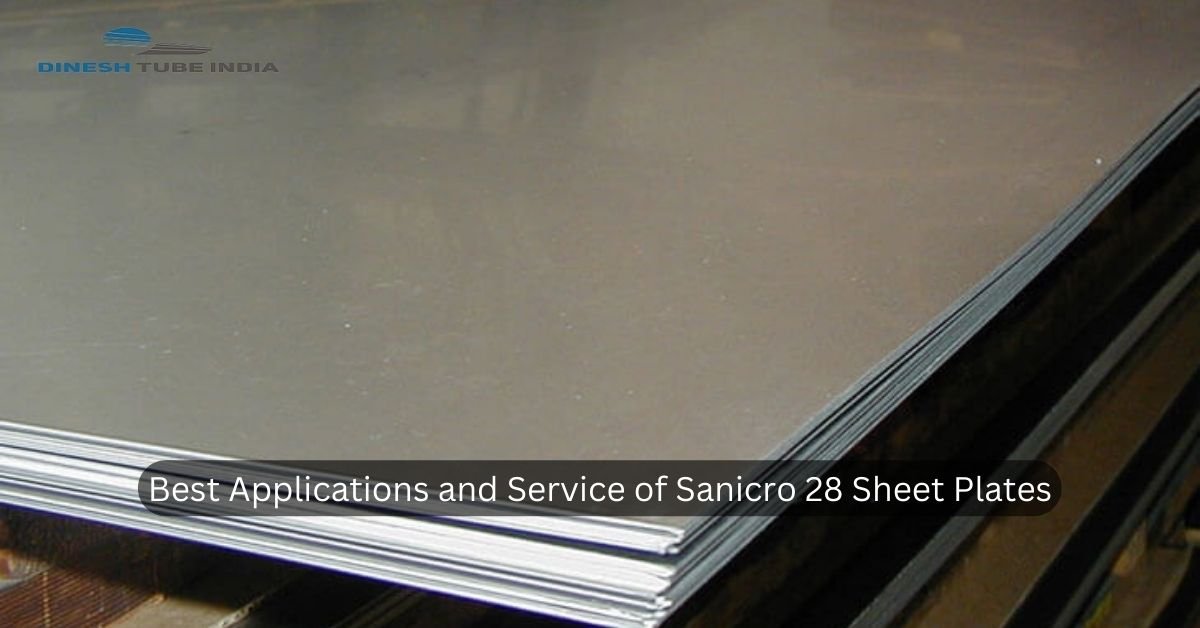For your business, it makes sense to use a product manufactured of Sanicro 28 Sheet Plates. This material provides a number of benefits, including outstanding chemical and impact strength and resistance to hydrochloric acid. Additionally, it’s one of the most widely used materials for a pipe that carries seawater and heat exchangers.
General Corrosion Resistance
Sanicro 28 stainless steel sheets and plates have a high level of corrosion resistance. They are frequently utilized in a variety of industries, including the production of chemicals, petrochemicals, food, paper, water, and energy. They exhibit strong resistance to pitting, crevice, and stress corrosion cracking.
The high nickel content in Sanicro 28 gives it great strength at high temperatures. In addition to having a high nickel content, the alloy also has molybdenum, which increases its corrosion resistance.
Sanicro 28 is an excellent option for uses where chlorides are prevalent. Stress corrosion cracking has been observed to increase with chlorides. Additionally, Sanicro 28’s chromium content is advantageous. The alloy is more resistant to corrosion when the chromium level is above 20%.
Sanicro 28 can be closely replaced by Alloy 904L in terms of general corrosion resistance. Additionally, it is more prone to intergranular corrosion. Sanicro 28 outperforms Alloy 904L in terms of resistance, nevertheless. Sanicro 28 was shown to be more resistant than Alloy 825 in ASTM G-48 procedure B.
Hydrochloric Acid Resistance
A high nickel alloy called SANITRO 28 is used to prevent corrosion. The alloy can survive extremely high temperatures and hostile environments and has great resistance to oxidation. Additionally, it can withstand sulfur compounds and chloride ions. Because the alloy contains a lot of nickel, it can withstand extremely acidic situations without corroding. Additionally, the alloy offers greater strength at high temperatures. This is a result of the alloy’s previous carbide characteristics.
The alloy’s high nickel concentration is especially advantageous for situations where stress corrosion cracking is more likely to occur. When the media contains a substantial amount of chloride ions, stress corrosion cracking happens. The high nickel and chromium composition of the alloy reduce the likelihood of stress corrosion cracking. Excellent impact strength is also provided by the alloy’s composition.
The high nickel percentage of the alloy also contributes to its increased strength at high temperatures. Superior resistance to intergranular corrosion is another property of the alloy.
Seawater Carrying Piping and Heat Exchangers
Heat exchangers that transport seawater should be made of stainless steel, such as Sanicro 28 Sheet Plates. Excellent weldability, high strength, and corrosion resistance are all features of the material. In seawater-cooled heat exchangers, it has taken the place of coated metal tubes and carbon steel.
Seawater is a liquid that comprises a wide range of chemical and biological components. In its composition, it may also comprise particles that are suspended. Choosing a heat exchanger that can manage these particles is crucial.
Sanicro 28 is a stainless steel with excellent resistance to corrosion in the presence of sulfuric acid, chlorides, and water. Additionally, it resists stress corrosion cracking well. It can be found in solution-annealed and cold work forms. Evaporators, water-cooled heat exchangers, and liners in deep sour gas wells have all employed it.
Impact Strength
Stainless steel sheets can function under difficult circumstances and have a longer service life. Additionally, they have high conductivity and strong resistance to galling and pitting. They are frequently employed in the chemical sector for significant corrosion-related applications. They can also be utilized in the building and power generation sectors. They may be easily welded and are rust-resistant.
An austenitic stainless steel alloy called Sanicro 28 is distinguished by its exceptional corrosion resistance in a variety of settings. Particularly in very acidic situations, it works well. Stress corrosion cracking and crevice corrosion are also resistant to it. It contains a lot of nickel, which helps prevent corrosion while it is in an active state.
Numerous industries, including the oil and gas sector, the petrochemical sector, and the food processing sector, can use Sanicro 28. A number of corrosive substances, such as sulfuric acid, chloric acid, and phosphoric acid, it is utilized to enhance corrosion resistance.

